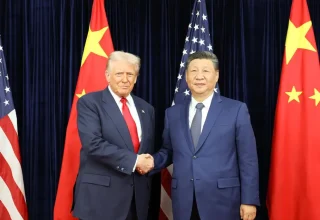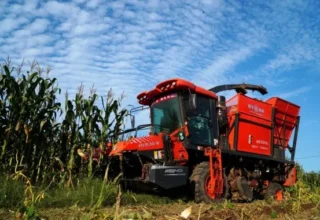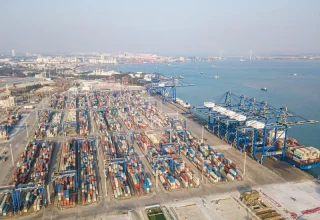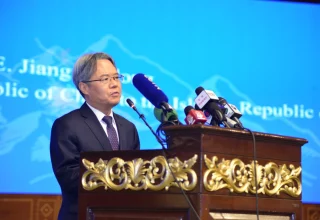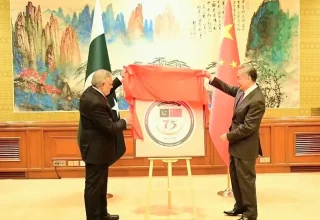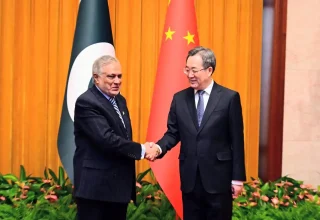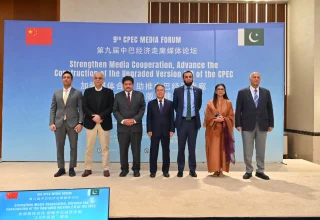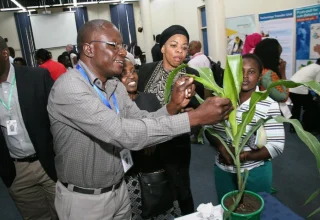
NAIROBI, Sept. 19, 2018 (Xinhua) — Dickens Nyagol (L), Research Technician at International Center of Insect Physiology and Ecology (ICIPE) demonstrates the process of push-pull technology during an exhibition on the sidelines of the Fall Armyworm meeting at Duduville Campus in Nairobi, capital of Kenya, Sept. 18, 2018. (XinhuaCharles Onyango)
KUNMING: China has initiated cooperation with countries participating in the Belt and Road Initiative in combating major transboundary crop pests and diseases such as the fall armyworm (FAW), sharing its experience, technologies and products with countries in Southeast Asia and Africa to enhance their ability to respond to major biosafety threats and establish defense barriers against them.
A field demonstration meeting was held Monday and Tuesday by the Institute of Plant Protection, the Chinese Academy of Agricultural Sciences (CAAS) in Jiangcheng county, Pu’er City in southwest China’s Yunnan Province, to showcase the progress of major crop pest and disease prevention and control technology in the border regions between China, Vietnam, and Laos.
Yang Zhenhai, Party chief of the CAAS, said that the academy will promote the application of new green pest and disease control technologies in Belt and Road partner countries, and enhance technological innovation in preventing and controlling transboundary pests and diseases.
Xia Jingyuan, the special advisor to the Director-General of the Food and Agriculture Organization of the United Nations (FAO), said that crop pests and diseases are major biological disasters with a significant impact on global food security, causing 40 percent loss in crop yield every year, equivalent to approximately 220 billion U.S. dollars.
FAW, originating from the Americas, has rapidly spread and proliferated across the entire African and Asian continents, as well as the South Pacific island nations, within just five years since its first reported invasion in Nigeria in 2016, posing a severe threat to global food security, Xia said.
















